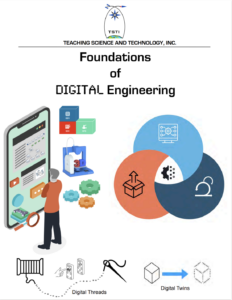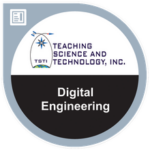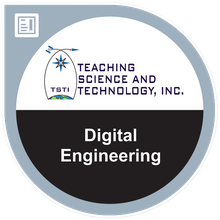Current Status
Price
Get Started
This course is available with a live instructor
onsite or through a virtual platform.
A Knowledge Framework to Guide Digital Transformation
Course Description:
The early 21st century may be remembered as the start of the 4th Industrial Revolution—Digital Transformation. The Foundations of Digital Engineering course prepares knowledge workers on the front line of this transformation to navigate this transition. This 2 or 3 day course begins by examining the elements of the “Digital Trinity” — Agile, Open Architecture and Digital Engineering — and their interdependencies. From this understanding, Digital Engineering (DE) principles and practices are explored in greater detail starting with Model-based Systems Engineering (MBSE). As the “model of the models,” MBSE serves a core function in the DE ecosystem. Ontologies, languages and frameworks are discussed to understand their broader application. Model development, validation and curation is then described. Finally, the importance and challenge of defining and managing an Authoritative Source of Truth (ASOT) is explored. The application of these tools within the enterprise then becomes the focus. Examples of current ecosystems and the promise of Artificial Intelligence and Machine Learning (AI/ML) to enhance the power of DE are presented. All of these capabilities require a robust digital working environment leading to an examination of the IT and DevSecOps challenges that entails. The course concludes by examining the INCOSE digital transformation metrics as participants apply these to understand the current state and next steps for their organization. This course is designed for project managers, systems engineers, payload principle investigators, subsystem engineers or project managers who are participating in or responsible for digital transformation in their organization.
At the end of this course you will be able to:
✦ Compare and contrast analog engineering, traditional Digital Engineering and the value proposition for more fully integrated Digital Engineering ecosystems.
✦ Explain the elements of the Digital “Trinity” and how they relate to each other.
✦ Describe the Lifecycle Modeling Framework as a thinking tool to conceptualize integrated Digital engineering ecosystems.
✦ Understand the DoD DE Strategy goals and their associated metrics in the INCOSE maturity guide.
✦ Characterize types of engineering and project models and their application across the product lifecycle.
✦ Generalize the challenges and techniques for developing, integrating and curating models.
✦ Analyze approaches for using models to evaluate digital trends in a system.
✦ Explain the advantages of having an ASOT.
✦ Discuss the challenges of managing multiple sources of truth in a project.
✦ Describe the elements and requirements for an idealized Digital Engineering Ecosystem. Data sharing models?
✦ Evaluate current commercial DE ecosystem products.
✦ Discuss the potential applications for AI/ML to enhance the value of DE.
✦ Appreciate the IT requirements and challenges of establishing an integrated DE ecosystem across an enterprise.
✦ Recognize the value of agile techniques to accelerate the digital transformation in an organization (DevSecOps)
✦ Apply the INCOSE maturity metrics to evaluate the transformation state of your organization.
✦ Discuss plans of action to lead and support digital transformation including workforce development requirements.
✦ Module 001 – Introduction to Digital Engineering
• The “Digital Trinity”—Lean-Agile, Open Architectures, Digital Engineering
• Lifecycle Modeling Framework
✦ Module 010 – Using Models and Defining the Truth
• Model-based Systems Engineering
• Ontologies, Languages and Frameworks
• Developing and Curating Models
• Authoritative Source of Truth (ASOT)
✦ Module 011 – The Digital Enterprise
• Digital Ecosystems
• Artificial Intelligence and Machine Learning
✦ Module 100 – Digital Environments
• IT Challenges
• DevSecOps
✦ Module 101 – Transforming the Workforce
• INCOSE Maturity Metrics
Each participant will receive:
• A complete set of course notes with copies of all slides used in the presentations

Sample Handout – coming soon!



